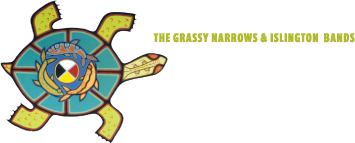Neurologists (Adult)
The Mercury Disability Board (MDB) is contracting qualified Neurologists to conduct medical assessments to determine the eligibility of community members from Grassy Narrows First Nation and Wabaseemoong Independent Nations for mercury disability benefits. The disability benefits scheme was initially designed in the 1980s as part of a settlement for the mercury contamination of the English and Wabigoon Rivers in Northwestern Ontario. The scheme is currently being modernized and made more accessible to community members. This is an exciting opportunity to be a member of a team of health professionals administering a modern, comprehensive, and culturally sensitive assessment process that is a key component to securing compensation for the harms experienced by Grassy Narrows First Nation and Wabaseemoong Independent Nations as a result of mercury exposure.
A Brief History of the MDB
Throughout the 1960s, a pulp and paper mill in Dryden Ontario discharged 10 tonnes of mercury into the English and Wabigoon Rivers, upstream from Grassy Narrows First Nation and Wabaseemoong Independent Nations (formerly Islington, formerly Whitedog). In November 1985, the two Nations reached a settlement with the mill owners, the federal government, and the province of Ontario for the devastating socio-economic and health impacts of the mercury contamination. Among other things, the settlement provided for the establishment of a disability benefits scheme for community members who have signs, symptoms or conditions consistent with mercury poisoning.
The Mercury Disability Board supervises the administration of the disability benefits scheme and oversees a claims and appeals process that is available to all Wabaseemoong and Grassy Narrows band members.
The Mercury Disability Board, with support of both Grassy Narrows First Nation and Wabaseemoong Independent Nations, as well as a panel of renowned experts from Canada and the US, is currently undergoing a modernization process to align fund administration including medical assessments with current best practices. Assessments are currently paused while updates to the assessment process are being finalized and appropriate health professionals are retained to conduct the assessments.
Assessments will resume in fall 2021 and will be held in Northwestern Ontario (Kenora, and in the Wabaseemoong and Grassy Narrows Communities), with some clinics occasionally held in Thunder Bay and Winnipeg.
Currently, approximately 2,000 members live on the Reserves. A further 1,600 Members live off Reserve with many living in Kenora or nearby. In total, 433 Members are now receiving monthly compensation of which 65 are children. Once the backlog of approximately 180 individuals is assessed in the fall and winter it is anticipated that hundreds of new applicants will be eligible for assessment.
Examination Administration
The purpose is to provide an objective, neutral examination of an applicant’s neurological status following the MDB examination protocol which includes: the Fahn Tolosa Tremor Rating Scale, BARS, DTR assessment and TNSr (adapted). These scales and examinations will become part of informing of the applicant’s entitlement to benefits.
Time Commitment
Assessment clinics are expected to run on a regular basis each month, commencing in the fall. In light of the expected number of assessments that will be required in late 2021 and 2022, there will be flexibility for those who can commit to more or less time. A minimum commitment of four (4) days per month is required. For those travelling long distances, minimum commitments should be in weekly tranches.
Requirements
Neurologists with experience and interest in the assessment of adult and senior applicants who are impacted by exposure to mercury.
Applicants must be a member in good standing with their relevant College. Membership in other professional organizations and/or associations is of benefit. Training including cultural safety training will be provided on program and service specific parameters.
What you bring to the MDB:
- Currently licensed to practice in a North American jurisdiction
- An Ontario license is required. For selected candidates who do not have an Ontario license but are willing to obtain one, the MDB will reimburse the cost of such
- Registered and in good standing with the relevant medical College
- Proof of personal liability & malpractice insurance coverage
- History of positive work experience with First Nations communities is an asset
In addition to the specific health profession expertise, you also bring to the MDB:
- good listening skills
- patience
- cultural respect with an understanding of Canada’s colonial history
- a willingness to learn about Grassy Narrows First Nations’ and Wabaseemoong Independent Nations’ specific history of mercury poisoning
Contractual Arrangements
Services will be provided under an Independent Contractor Agreement which will address remuneration, travel expenses, out-of-pocket expenditures and other usual contractual arrangements such as the services to be provided, equipment and confidentiality etc. It is understood that lead times for block time bookings can be considerable. Accordingly, the booking of weekly block times will be described which can be tailored to individual needs. The block time cancellation process will also be addressed.
Application Process

Mercury Disability Board
P.O. Box 621
Kenora, Ontario P9N 3X6
Phone: 807.466.3146
Fax: 1.833.324.2245